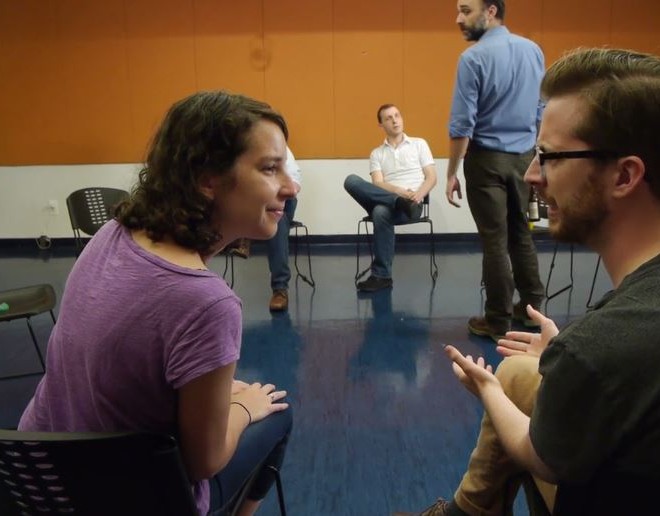Ladies and gentlemen, Shakespeare and his peers have left the building.
Now you see them. Now you don’t.
A Scottish noblewoman urges her husband to lure the King to their castle and murder him in the night. He agrees with the plan and bids her, “Away, and mock the time with fairest show/False face must hide what the false heart doth know.”
And then they’re gone, creeping off into the wings as the next scene begins.
Macbeth and his Lady were following Shakespeare’s stage direction: “Exeunt,” or, “They exit.”
“Exeunt” is Latin. It’s the third-person plural present indicative of the verb exire, which translates as “to go out” or “to leave.” You see it a lot when reading Shakespeare, as well as in acting editions of other plays from the Elizabethan and Jacobean periods.
Back in Renaissance England, play scripts began to be printed and published for the first time. The fashion of the era was to use Latin for the stage directions. Remnants of that tradition persist in some playscripts of Shakespeare and his contemporaries, where “exeunt” indicates two or more actors are to leave the stage. It’s pronounced ek-see-uhnt or ek-see-oont.
When everyone departs the playing area at the same time, the direction becomes, “Exeunt omnes” (all exit). Here’s an example from the final moment of a famous tragedy:
PRINCE: …For never was a story of more woe/Than this of Juliet and her Romeo.
[Exeunt omnes.]
The whole cast leaves the stage. Curtain.
— Ben Pesner
This video was created by TDF and New York Neo-Futurists.

